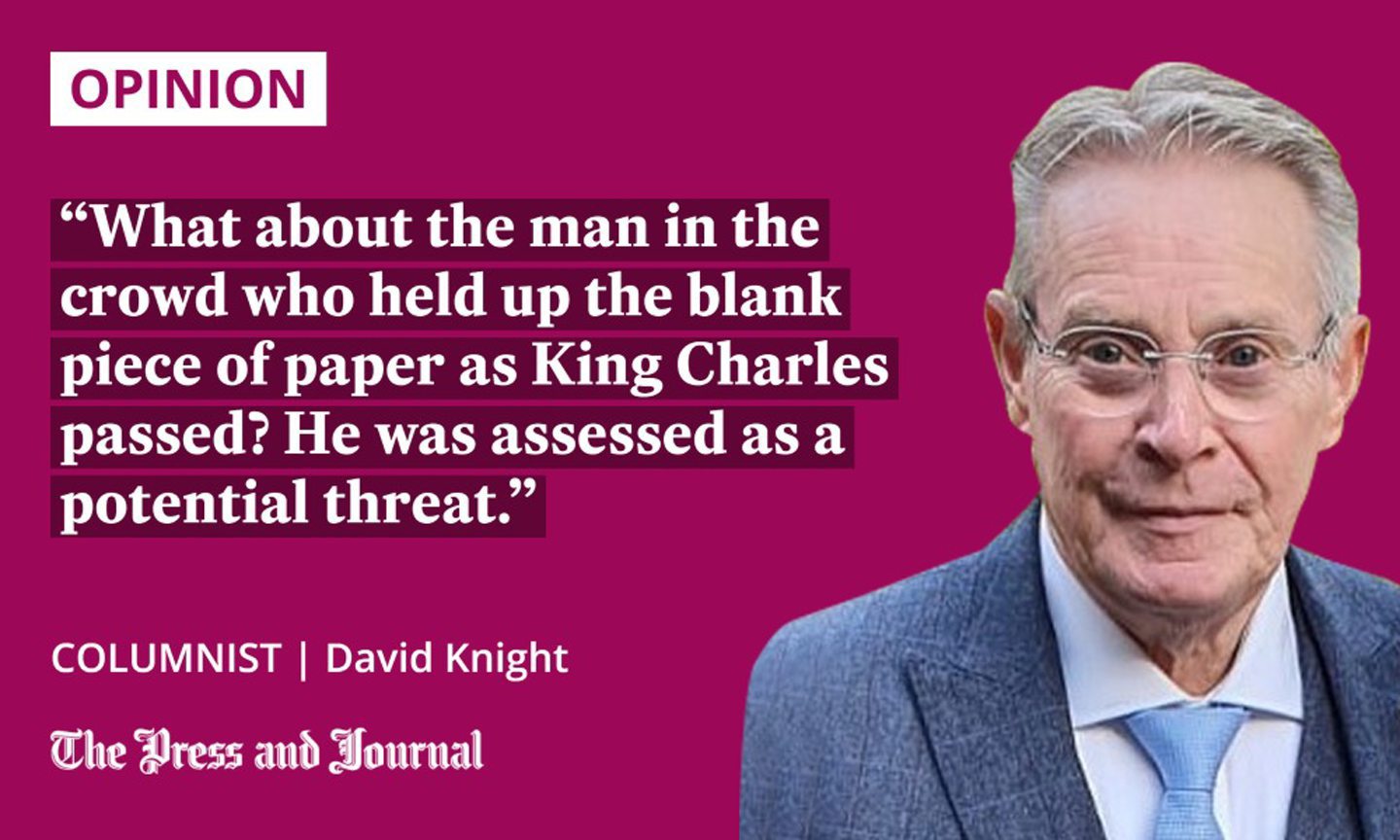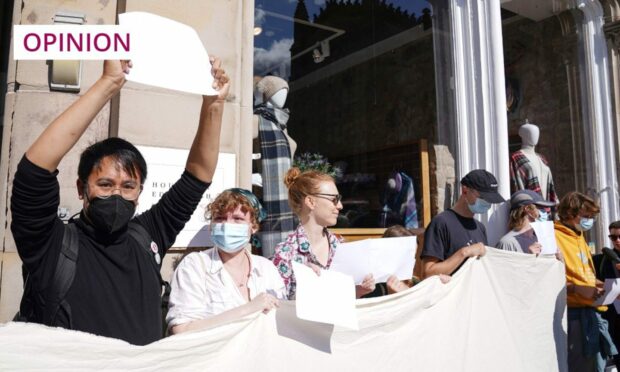In an age of social media mobs and heavy-handed policing, we must fiercely defend our right to speak our truth, writes David Knight.
I was listening to an interview with a man who became something of a celebrity after being confronted by police for holding a blank sheet of paper in public.
He was speaking a few days ago, and clearly basking in the joy of being vindicated.
It was a protest stunt aimed at the new monarch, but also underlined a basic principle.
Police had a rethink amid a hullabaloo about heavy-handedness, and promised to be more careful around peaceful protest.

These days, I sense freedom of expression is under threat from all directions in our new intolerant world. Shouting people down or destroying them are now standard weapons in response to anything deemed politically incorrect.
Whatever happened to the old phrase: “I disagree strongly with what you say, but respect your right to say it”?
My resolution going forward into the new year is to encourage everyone to challenge such threats to genuine free speech at every opportunity.
Does that mean anything goes and there are no limits? Of course not.
Instant vilification has become too common
Surely there is a limit to how much gratuitous offence you can get away with before the public puts its foot down? But, those calibrations must also be as relaxed as can be, and not screwed down by chronic sensitivity.
Let’s be reasonable about it. Or, put another way, ask what the average man or woman in the street would think of such “outrages” – as opposed to howling mobs on social media, who make a profession out of a state of perpetual offence.
As a lawyer once put it, what would the man on “the Clapham omnibus think?” as an accurate barometer of public opinion.
The exact geographic location in this famous old legal expression is flexible, of course, and travels well around the world. Therefore, the opinion of someone on a bus in Drumnadrochit or Aberchirder is just as valid.
It’s now common to hear thousands demanding instant vilification or punishment, sackings, or even a company’s products boycotted. Is this a reasonable response to freedom of expression?
Is a blank piece of paper a threat?
The “blank paper man” confrontation was a by-product of police responses to incidents of public dissent towards King Charles as he led street processions in mourning, immediately after the Queen’s death.
Throwing eggs or overly aggressive behaviour which alarms people in public places – especially when royal security is at stake – is obviously going to attract police attention. But what about the man in the crowd who held up the blank piece of paper as King Charles passed? He was assessed as a potential threat.
All right, some people might have marked him down as a clever clogs who ought to do something more useful. But, he forced an issue which should concern all of us
He must have been, or why did police ask him about his motives – and his address, while they were at it?
A point was being made by this man, of course, about peaceful protest and free speech.
All right, some people might have marked him down as a clever clogs who ought to do something more useful. But, he forced an issue which should concern all of us – that freedom of expression was being suffocated by police overreaction.
Police accused of being too tough and not tough enough
Ironically, police have also had to address accusations of not being tough enough – with climate protesters, whose actions cause mass disruption to everyday life. They, too, feel they have a right to freedom of expression.
But, it seems, we have to accept that such freedoms are not limitless; otherwise, we descend into complete anarchy.
Nevertheless, the starting point must be to defend this basic right where justified or, before we know it, it’s lost.
“Not my King”. These were the words the man was allegedly warned not to write, or he would face arrest.
Similar blank-paper protests surfaced in Edinburgh around the time of the Queen’s death, after actual arrests. They are already an established symbol of protest in China and Russia, but with far worse consequences for those brave enough.
Freedom of expression and information are paramount
Freedom of expression has a close relation: freedom of information. This is another basic principle which is a battleground between public institutions and the media, as well as other interested parties.
We can learn a lot about bodies, such as local or central government, from what they won’t tell us rather than what they will.
Take Aberdeen City Council, for example. It refused stubbornly to reveal the absenteeism records of its child protection committee, but caved in after terrier-like persistence by The P&J. More openness about its membership is still lacking, however.
Now, the same authority is causing public concern with dubious “experimental traffic orders” to dramatically change – and disrupt – traffic flows. These unusual orders mean the council doesn’t consult the public in advance; it can be done after it’s all up and running.
You can’t write comedy material as good as this.
Oh, and one more thing. Happy New Year, by the way.
David Knight is the long-serving former deputy editor of The Press and Journal



Conversation